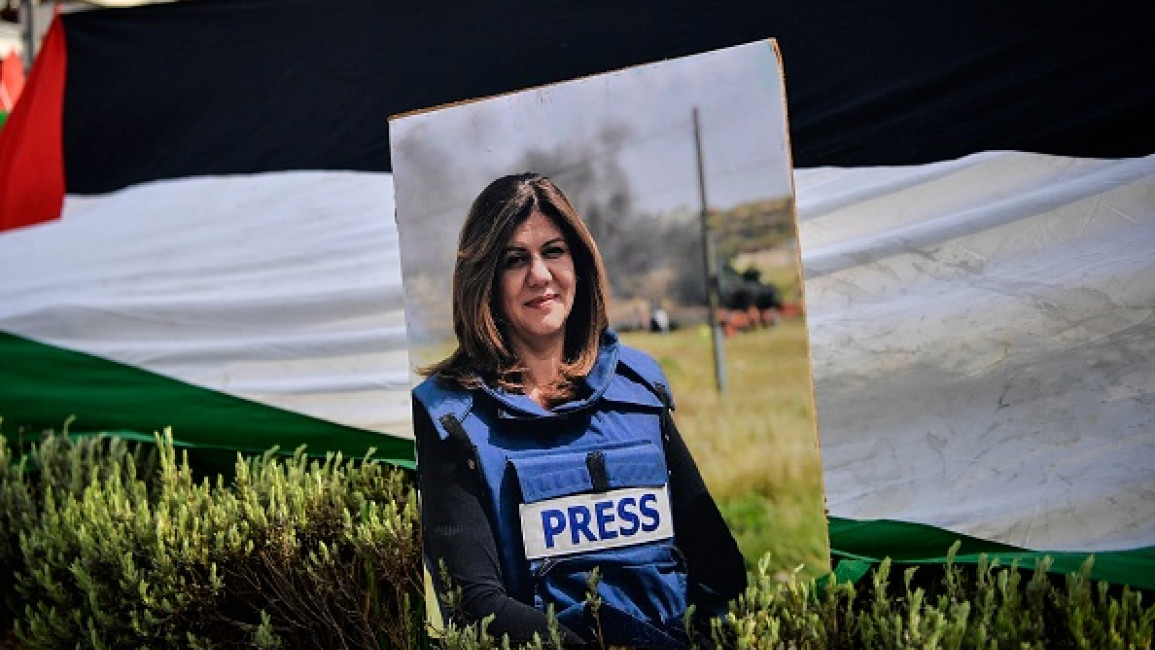Ireland to hold UN Security Council meeting on press freedom, slain Palestinian journalist Shireen Abu Akleh
Ireland’s permanent representative at the United Nations, Geraldine Byrne Nason, is set to host an informal meeting regarding the protection of journalists, as well as to highlight the killing of prominent Palestinian journalist Shireen Abu Akleh, reported Al Jazeera.
The meeting, which is expected to take place on Tuesday, will also anticipate the presence of all 15 members of the UN’s Security Council, where talks surrounding press freedom and journalists' safety will be brought forth in light of Abu Akleh’s killing earlier this month.
The Palestinian journalist, whose career spanned 25 years at the pan-Arab Al Jazeera Network, was killed on 11 May by Israeli forces who shot her in the head as she was reporting on Israeli raids in the occupied West Bank’s city of Jenin. Abu Akleh was wearing a visible press vest at the time of the shooting.
Abu Akleh’s death sparked an outcry from journalists worldwide, and drew the condemnation of pro-Palestinian activists across the globe.
Byrne Nason, who will chair the meeting, will be joined by the UN special rapporteur on media freedom Irene Khan, as well as and the Committee to Protect Journalists (CPJ) board member Jon Williams, who will be briefing the meeting.
Representative journalists for both Al Jazeera and AFP will also be present.
Palestinians reacted with shock and horror at Abu Akleh's killing, leading to an outpouring of grief for the trailblazing journalist who covered a myriad of Palestinian topics during her career, notably the Second Intifada.
On 13 May, the Security Council also condemned the incident- which Palestinians have called an assassination- and called for a "an immediate, thorough, transparent and impartial" probe into her killing.
In another statement, UN human rights experts said the incident could "constitute a war crime".
A host of NGOs also demanded an independent probe into the renowned journalist’s killing.
Multiple instances of eyewitness accounts, including those of Abu Akleh’s colleagues, as well as video and photographic evidence points to Israeli involvement in her killing.
Despite this, Israeli officials initially blamed "Palestinian militants" for her killing.
Abu Akleh’s death highlighted the plight of Palestinian journalists covering events in the occupied West Bank and the besieged Gaza Strip.
Israel has killed at least 45 Palestinian journalism professions since 2000, according to Palestinian ministry of information figures. The Palestinian Journalists Union, however, suggests that the figure is higher- reaching 55.


![Minnesota Tim Walz is working to court Muslim voters. [Getty]](/sites/default/files/styles/image_684x385/public/2169747529.jpeg?h=a5f2f23a&itok=b63Wif2V)




![Debris near Rafic Hariri International Airport [Getty]](/sites/default/files/styles/image_212x120/public/2176162423.jpeg?h=a5f2f23a&itok=XLiO6WHk)
![An Israeli air strike on Jabalia killed teenage journalist Hassan Hamad [Screengrab/X]](/sites/default/files/styles/image_330x185/public/2024-10/hassan%20hamad1.jpg?h=c12e0b96&itok=Rd_dyCVp)
